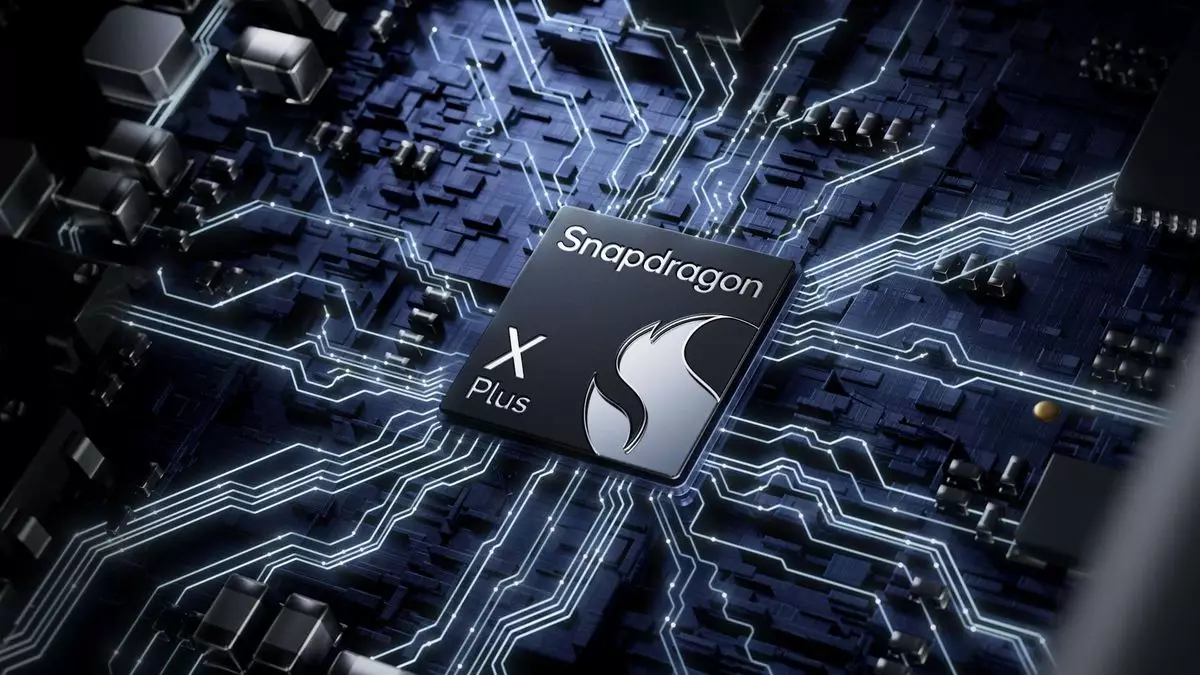The tech world is rife with speculation and rumors, particularly when it comes to major companies with substantial market influence. One such current rumor circulating around the industry suggests Qualcomm has its eyes set on a full acquisition of Intel’s chip design business. While this narrative is enticing for many, a critical analysis of the feasibility and motivations behind such a move reveals significant obstacles that make this speculation more of a long shot than a legitimate possibility.
Initially emerging from a Reuters report, the idea of Qualcomm pursuing Intel has gained traction, with outlets like the Wall Street Journal and CNBC corroborating the rumor. However, the silence from both Qualcomm and Intel regarding these allegations raises eyebrows. Neither company has officially commented, which is a common practice in corporate environments, but it also suggests a level of skepticism towards the rumors’ credibility. Companies often do not respond to speculative claims, especially when these claims may not align with their strategic objectives.
The market at large may find gossip regarding high-profile mergers fascinating, yet it’s essential to discern the substance behind the stories. Just because two titans of technology are engaged in discussions does not automatically imply they are on a collision course for a merger. Instead, it could very well be discussions intended for collaboration or partnerships on specific projects.
Another critical aspect to analyze when discussing a potential Qualcomm acquisition of Intel is the financial landscape of both companies. Qualcomm boasts a larger market capitalization than Intel but lags behind in terms of revenue and operating income. Qualcomm does have liquidity on its balance sheet, but analysts believe this financial toolkit isn’t sufficient to swallow an entity as enormous as Intel outright.
Additionally, while Qualcomm focuses primarily on Arm-based chip designs, Intel is deeply entrenched in x86 architecture. Acquiring Intel would present Qualcomm with significant legal and operational challenges, particularly regarding the transition between architectures. It’s also important to consider that transitioning technologies would require not just hardware modifications but extensive software support as well, which Qualcomm currently lacks for a seamless x86 experience for its Snapdragon processor line.
One of the apparent motivations behind Qualcomm’s rumored interest in acquiring Intel might stem from the idea of securing a licensing agreement for x86 architecture. Currently, Qualcomm’s processors rely heavily on software emulation to run Windows applications, which is far from optimal. Securing an x86 license would allow Qualcomm to manufacture chips based on this architecture without those inefficient emulation layers. However, pursuing a full acquisition, rather than simply obtaining a licensing agreement, raises questions about strategic prudence.
The landscape is made even more complex with AMD’s influence over the x86 licensing scenario. As AMD retains significant control in this realm, any attempts by Qualcomm to reshape the licensing terms would likely face formidable resistance, diminishing the attractiveness of outright ownership of Intel.
Despite Indianapolis being almost synonymous with semiconductor production, moving forward with a merger that combines Qualcomm and Intel would soon meet insurmountable obstacles in the regulatory sector. History gives us plenty of examples of mega-mergers facing severe scrutiny—from AT&T and Time Warner to Nvidia’s attempt to acquire Arm. The precedent set by these failed mergers reflects regulators’ hesitance to allow excessive consolidation within industries crucial to technological innovation.
The implications of Qualcomm merging with Intel could lead to a monopolistic situation that lawmakers would almost certainly want to avoid. Not only would such a merger alter competition dynamics within the semiconductor market, but it could also affect pricing and innovation moving forward, leading to widespread consumer pushback.
While the possibility of Qualcomm acquiring Intel may have captured headlines and sparked intrigue within tech circles, a careful evaluation of market dynamics, financial capabilities, licensing strategies, and regulatory landscapes suggests that this merger is highly improbable. Rather than a precursor to a significant game-changing acquisition, the discussions between these two companies may result in collaborations or strategic partnerships for certain projects within the tech ecosystem. As the dust settles, it will undoubtedly become clear that while rumors can often make for exciting speculation, the reality of corporate mergers remains immensely complex and often outsized by the barriers of execution.

